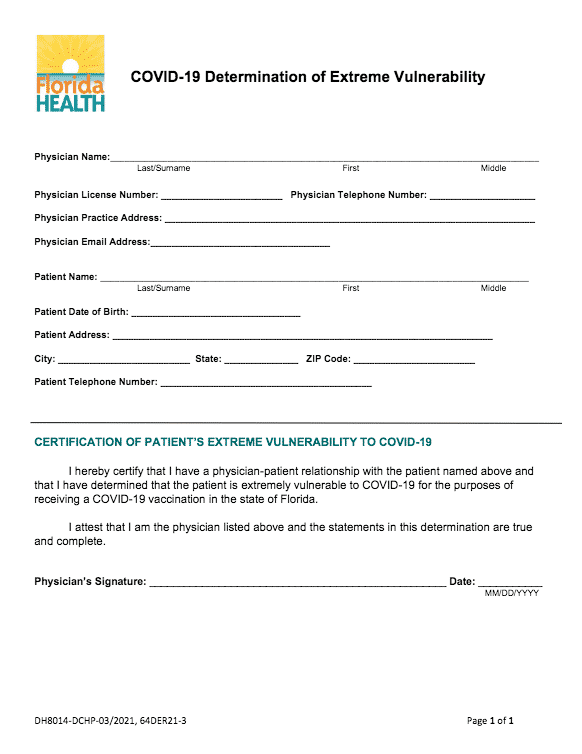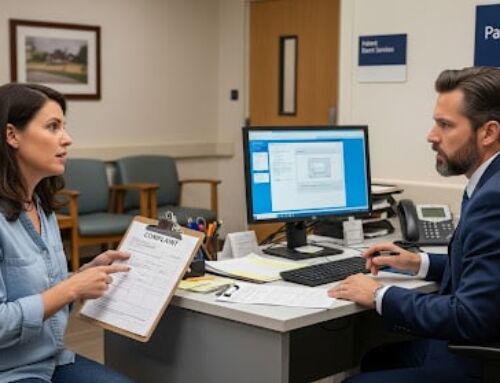The Florida Department of Health has come under fire for its “COVID-19 Determination of Extreme Vulnerability” form, some claiming that it is a HIPAA violation. But is Florida’s vulnerable form for COVID vaccination a HIPAA violation?
What is the Vulnerable Form for COVID Vaccination?
Earlier this month, the Governor of Florida, Ron Desantis, issued an executive order allowing pharmacies to provide vaccines to “extremely vulnerable” Florida residents. With this order, the Florida Department of Health released a form for residents, claiming to be “extremely vulnerable,” to prove their vulnerability with essentially what amounts to a doctor’s note.

The form requires a treating physician to fill out basic information, including the provider’s name, contact information, and license number. It also asks for protected health information such as the patient’s name, date of birth, and contact information.
The form then states, above the physician’s signature line, “I hereby certify that I have a physician-patient relationship with the patient named above and that I have determined that the patient is extremely vulnerable to COVID-19 for the purposes of receiving a COVID-19 vaccination in the state of Florida. I attest that I am the physician listed above and the statements in this determination are true and complete.”
Is Florida’s Vulnerable Form for COVID Vaccination a HIPAA Violation?
Ever since the release of the vulnerable form for COVID vaccination, local news organizations have been receiving complaints from healthcare workers claiming that this practice is a HIPAA violation.
However, this is simply untrue. Under HIPAA, pharmacies are considered covered entities as they are involved in the treatment of patients. As such, even at grocery store pharmacies, the pharmacist and the pharmacy workers are held to HIPAA Privacy Rule standards.
So when a patient looking to receive a COVID-19 vaccine presents the “extremely vulnerable” form to a pharmacy worker, that worker cannot use or disclose the information on the form for reasons other than treating the patient.










